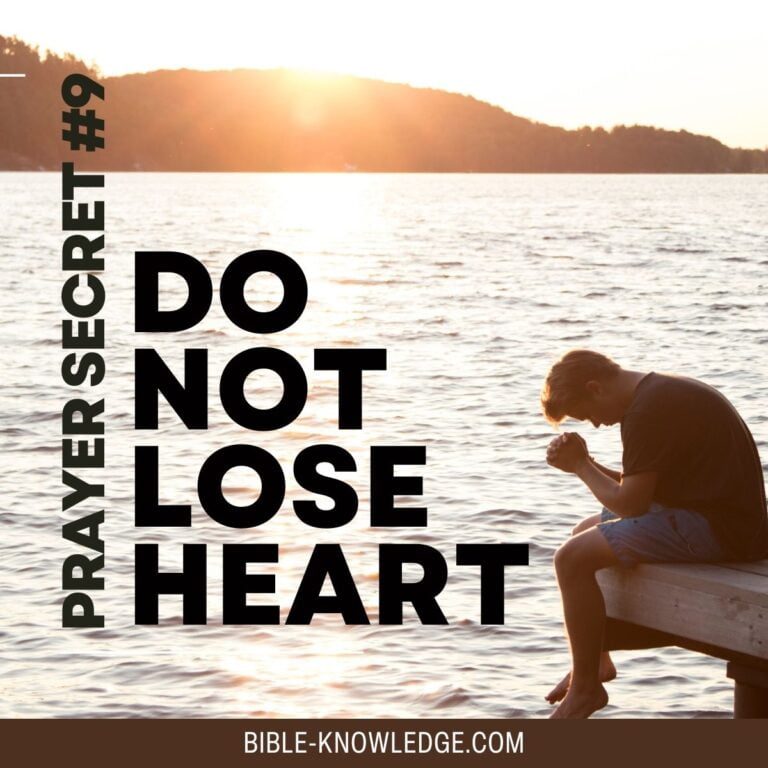Have you ever started your day perfectly normal, only to find by bedtime that night your entire life has changed? A crisis can do this. A crisis comes at us entirely unexpectedly. It can be a phone call telling us a loved one has had an accident or someone near to us has passed away. Perhaps you received a diagnosis of sickness or a lost job. There are so many things that can bring our lives to a screeching halt with no warning whatsoever.
Proverbs 27:1 Boast not thyself of tomorrow; for thou knowest not what a day may bring forth.
A tragedy is defined as “a lamentable, dreadful, or fatal event or affair; calamity; disaster.”
A crisis is defined as “a dramatic emotional or circumstantial upheaval in a person’s life.”
It probably doesn’t take but a moment for you to think of a time in your life that you can define this way. Perhaps you are going through a time like this right now.
The Bible has much to say about dealing with a crisis or a tragedy in our lives.
The life of David was filled with victories such as the killing of Goliath and reigning as a conquering king, but David’s life also had its share of tragedies. How David reacted to these tragedies can teach us some important lessons about how to handle these events in our own lives as well.

David A Man After God’s Heart
“…he raised up unto them David to be their king; to whom also he gave their testimony, and said, I have found David the son of Jesse, a man after mine own heart, which shall fulfill all my will.”
Acts 13:22
God called David a man after His own heart. This is a distinct compliment that God never gives to another person in the Bible. This distinct compliment is given to David, not because David proved to be a perfect man, or a man without mistakes and faults, but rather he receives this compliment from God because David knew how to handle his mistakes, his failures and his tragedies.
Our human minds might be tempted to question why, if David was a man after God’s heart, did he experience tragedies? If God preferred David so much, why didn’t he simply spare him trouble? Why doesn’t God spare us trouble if we are living for Him and serving Him?
The answer to this question lies in the fact that God does not want to simply save us and take us to heaven. Here on this earth, God is attempting to prepare us for heaven. Our souls may be saved, but that does not mean they have evolved. There is much human nature that must still be trained out of us.
God accomplishes this through trials, troubles and tragedies.
If you think back to a time in your life that was particularly stressful or challenging, you might remember that God taught you some significant lessons during that time. These lessons probably could not have been taught any other way.
Personally, I am reminded of the time period in my life in which my marriage dissolved. I had to find a new church home, and I physically moved me and my children to a different town. All of this took place within the span of 14 months. It was most definitely a crisis in my life. However, now, as I can look back with some distance and perspective on that time, I see so many ways that God allowed me to grow and important lessons He allowed me to learn which I could not have learned any other way.
There were aspects of my character and spirituality that could never have developed if my life had simply kept chugging along on the same old path with no obstacles to challenge me. This is why these trials come into our lives.
But he knoweth the way that I take: when he hath tried me, I shall come forth as gold.
Job 23:10
Let’s look at some of the tragedies that David faced, how he handled these situations and what lessons we can learn when we face our own crisis.
Friendships In Crisis
In 1 Samuel 17, David has just come through his first and most notable victory. He has slain the giant Goliath. This victory caught the attention of King Saul, the present reigning king in Israel.
55 And when Saul saw David go forth against the Philistine, he said unto Abner, the captain of the host, Abner, whose son is this youth? And Abner said, As thy soul liveth, O king, I cannot tell. 56 And the king said, Inquire thou whose son the stripling is.
1 Samuel 17:55-56
David had greatly impressed King Saul. He had impressed him so much that Saul wanted David to stay at the palace.
And Saul took him that day, and would let him go no more home to his father’s house.
1 Samuel 18:2
Saul wanted David near because he liked him. However, this friendship would take a dramatic turn for the worse and rather quickly.
6 And it came to pass as they came, when David was returned from the slaughter of the Philistine, that the women came out of all cities of Israel, singing and dancing, to meet king Saul, with tabrets, with joy, and with instruments of musick. 7 And the women answered one another as they played, and said, Saul hath slain his thousands, and David his ten thousands. 8 And Saul was very wroth, and the saying displeased him; and he said, They have ascribed unto David ten thousands, and to me they have ascribed but thousands: and what can he have more but the kingdom? 9 And Saul eyed David from that day and forward.
1 Samuel 18:6-9
Jealousy, as it often does, drove a wedge between Saul and David. What had begun as admiration, quickly turned to disdain in Saul’s heart. That distain quickly turned to hatred and even violence.
9 And it came to pass on the morrow, that the evil spirit from God came upon Saul, and he prophesied in the midst of the house: and David played with his hand, as at other times: and there was a javelin in Saul’s hand. 11 And Saul cast the javelin; for he said, I will smite David even to the wall with it. And David avoided out of his presence twice.
1 Samuel 18:9-11
During this crisis in David’s life, he had lost a friendship. No doubt after David’s victory over Goliath, Saul had become somewhat of a mentor, or at least a role model to David. How heartbreaking to suddenly find yourself at odds with someone who was so important to you. So, how did David react to this crisis in his life?
And David behaved himself wisely in all his ways; and the Lord was with him.
1 Samuel 18:14
David did not react with hysteria, anger or even resentment. David reacted with wisdom. When you find yourself in a crisis with friendships, it is best to proceed with extreme caution. Seek wisdom from God on how to handle the situation. It is very easy to let hurt feelings rule the day and this can have long-term consequences. In David’s situation, the relationship with Saul was never reconciled, but in many cases, a friendship can be reconciled if both parties slow down, take a breath and ask God how to figure out the problem.
Relationships in Crisis
Later on in 1 Samuel 18, we are introduced to the woman who would become David’s first wife.
And Michal Saul’s daughter loved David: and they told Saul, and the thing pleased him.
1 Samuel 18:20
Saul gives her to David as wife because he had promised David a wife if he attacked the Philistines again. It is clear from these verses that in the beginning Michal loved David and wanted to marry him. We see other instances of Michal’s love and faithfulness later on when Saul’s rage toward David intensifies.
11 Saul also sent messengers unto David’s house, to watch him, and to slay him in the morning: and Michal David’s wife told him, saying, If thou save not thy life to night, to morrow thou shalt be slain. 12 So Michal let David down through a window: and he went, and fled, and escaped. 13 And Michal took an image, and laid it in the bed, and put a pillow of goats’ hair for his bolster, and covered it with a cloth. 14 And when Saul sent messengers to take David, she said, He is sick. 15 And Saul sent the messengers again to see David, saying, Bring him up to me in the bed, that I may slay him. 16 And when the messengers were come in, behold, there was an image in the bed, with a pillow of goats’ hair for his bolster.
1 Samuel 19:11-16
Here Michal is willing to go against her own father, the king, in order to protect her beloved David. It sounds as if this marriage is rock solid. There is love. There is loyalty. What could possibly come between these two? As is the case in many relationships, it turns out to be something that sounds rather silly, but it causes a crisis in David’s life nonetheless.
And as the ark of the Lord came into the city of David, Michal Saul’s daughter looked through a window, and saw king David leaping and dancing before the Lord; and she despised him in her heart.
2 Samuel 20:16
She was willing to trick her own father, who was on a murdering rampage because she had so much love in her heart for David, but dancing she couldn’t take. Dancing turns out to be the thing that will drive a wedge between her and David. When Michal confronts him later, we see how David responds to a crisis in his relationships.
And David said unto Michal, It was before the Lord, which chose me before thy father, and before all his house, to appoint me ruler over the people of the Lord, over Israel: therefore will I play before the Lord.
2 Samuel 19:21
When faced with this crisis, David chooses to take the side of the Lord. When a relationship goes into crisis, you will only be blessed if you choose the side of the Lord. Sometimes this means that God is going to reconcile the relationship. Other times, however, it means that God is going to let that relationship leave your life.
God went on to bless David tremendously, but Michal was cursed because of her sin.
Therefore Michal, the daughter of Saul, had no child until the day of her death.
2 Samuel 19:23
Sometimes, all that you can do is find out what God’s will is for you to do, do that faithfully, and let the other person do whatever it is they think they need to do. This could lead you both down very different paths. This is heartbreaking at first. I speak from experience, but there is another side. On that other side, there is victory and peace.
This is why David could later write Psalms 18:1-3 I will love thee, O Lord, my strength. 2 The Lord is my rock, and my fortress, and my deliverer; my God, my strength, in whom I will trust; my buckler, and the horn of my salvation, and my high tower. 3 I will call upon the Lord, who is worthy to be praised: so shall I be saved from mine enemies.
The Personal Self in Crisis
Many of the tragedies we experience are a result of some outside force working on us. Something “out there” in the world seems to be attacking our lives. It can be anything from the economy to sickness and disease, friendships, relationships, or even our government. You feel as if you were doing just fine until this thing struck your life. Those are challenging times, no doubt. We know that in those times we can go to God our Father and He will protect us, fight for us, and give us victory.
But what about those times when it is not an outside force? What about those times when we ourselves create the tragedy in our own lives? What do we do when we are in a personal crisis? Does God care about this too? Here again, we can look to David for some enlightenment.
By the time we get to 2 Samuel 11, David has reached the height of his success. The shepherd boy, who never had any intention of being more, has now become king. His people love him and follow him faithfully. God has blessed him against his enemies. He has prospered. He has his kingdom. He has wives who have given him children. He should be content. He should be satisfied.
He is not content or satisfied, though. He is restless. He is distracted from his duties and he is not out serving as he should be.
And it came to pass, after the year was expired, at the time when kings go forth to battle, that David sent Joab, and his servants with him, and all Israel; and they destroyed the children of Ammon, and besieged Rabbah. But David tarried still at Jerusalem.
2 Samuel 11:1
This verse clearly says that this was a time when “kings go forth to battle.” David was supposed to be out with his men. That was his duty. That was his responsibility. That was the role God had placed him in and this was where David found fulfillment and victory. Where was David? “David tarried still at Jerusalem.”
There is a very important principle here. When God clearly reveals to you your place, your duty, your responsibility, that is where you will find your contentment, fulfillment and victory. When you step out of that role, things can spiral out of control very quickly, just as they did for David.
2 And it came to pass in an evening tide, that David arose from off his bed, and walked upon the roof of the king’s house: and from the roof he saw a woman washing herself; and the woman was very beautiful to look upon. 3 And David sent and inquired after the woman. And one said, Is not this Bathsheba, the daughter of Eliam, the wife of Uriah the Hittite? 4 And David sent messengers, and took her; and she came in unto him, and he lay with her; for she was purified from her uncleanness: and she returned unto her house. 5 And the woman conceived, and sent and told David, and said, I am with child.
2 Samuel 11:2-5
David threw himself into crisis here when he stepped out of his role and stepped away from his responsibilities. If you are familiar with this story, you might know that it only got worse from there. As if getting another man’s wife pregnant wasn’t bad enough, now David wants to fix the problem himself.
Here is another important principle. When you have stepped away from the will of God and stepped out of that role God put you in, God’s wisdom will no longer be guiding your decisions. The miraculous thing about living inside the will of God, on the path that God laid out for you, is that all along the way the Holy Spirit will be guiding your steps and guiding your choices. This brings the best possible outcomes for you.
However, when you step outside the will of God, that Divine guidance is no longer with you. You are now operating on your own limited wisdom and your own selfish motives. We see where David’s wisdom leads him.
In verse 6:13 David tries desperately to convince Uriah, Bathsheba’s husband, to take a break from battle and go home to spend some time with his wife. This would make the child that is to be born appear to be Uriah’s. But Uriah is so honorable that he feels that it would be unfair to his brothers on the battlefield to take a vacation while they are fighting. So he refuses to go home. So David, still acting outside the wisdom of God, making choices based on only his selfish human understanding, decides to try something else.
14 And it came to pass in the morning, that David wrote a letter to Joab, and sent it by the hand of Uriah. 15 And he wrote in the letter, saying, Set ye Uriah in the forefront of the hottest battle, and retire ye from him, that he may be smitten, and die. 16 And it came to pass, when Joab observed the city, that he assigned Uriah unto a place where he knew that valiant men were. 17 And the men of the city went out, and fought with Joab: and there fell some of the people of the servants of David; and Uriah the Hittite died also. Verse 26 And when the wife of Uriah heard that Uriah her husband was dead, she mourned for her husband. 27 And when the mourning was past, David sent and fetched her to his house, and she became his wife, and bare him a son. But the thing that David had done displeased the Lord.
2 Samuel 11: 14-17 & 26-27
David’s life has totally spiraled out in 2 Samuel 11. He thinks he has gotten away with it, but God cared about David. He had more plans for David and so this situation must be corrected.
It is corrected in 2 Samuel 12, when God sends Nathan, the prophet to confront David with is actions.
Wherefore hast thou despised the commandment of the Lord, to do evil in his sight? thou hast killed Uriah the Hittite with the sword, and hast taken his wife to be thy wife, and hast slain him with the sword of the children of Ammon.
2 Samuel 12:9
And here is where David’s crisis has the possibility of making a turning point. Does he defend his actions and continue living outside the will, wisdom and protection of God? Or does he repent and step back into the will of God?
And David said unto Nathan, I have sinned against the Lord.
2 Samuel 12:13
David chooses to repent. When we have thrown our own lives into personal crisis by stepping out of the will of God, the only thing we can do to make things right is to repent. Repent and pick up where we left off.
God cares about you too much to allow you to keep going down the path you are on. God wants to bring you back to His will. This is why there are consequences. This is why God will send a man of God to show you the error of your ways. A personal crisis can be remedied. Seek God. Repent and get back on the path God laid out for you.
Pray this prayer with David, Psalms 51:10-12:
10 Create in me a clean heart, O God; and renew a right spirit within me. 11 Cast me not away from thy presence; and take not thy holy spirit from me. 12 Restore unto me the joy of thy salvation; and uphold me with thy free spirit.
Psalms 51:10-12





This is such a beautiful piece of literature. I am praying that God will reveal my place, duties and responsibilities so i may serve him. Not only to reveal these things to me. But give me wisdom to not step away and God’s wisdom to guide my daily decisions.
I learned that, if we don’t stay connected to God. It’s easy to get off track and get lost in ourselves.
Repent for your actions that you know are not the will of God. Get back on the right path, the Holy Spirit ordering your steps. Keep looking for God’s wisdom in disappointments, trouble and tragedies.
Never lose hope.